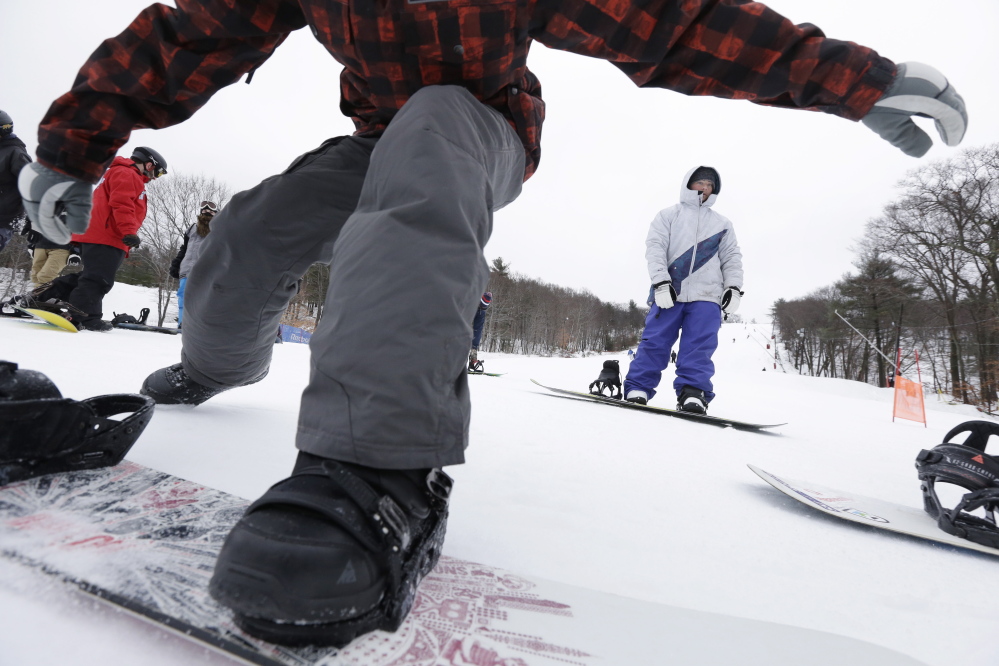SOUTH ROYALTON, Vt. — Ski resorts in the New England states of Connecticut, Massachusetts and Rhode island are not well poised to survive at the end of the century as the region is expected to see warmer winters, a National Center for Atmospheric Research scientist said Thursday.
Vermont is less vulnerable because many of resorts are at higher elevations and have invested in new snowmaking technology, Elizabeth Burakowski said at a Vermont Law School symposium on the impact of climate change on the winter sports industry.
To be profitable, resorts need to be open 100 days a season and during holidays and have snowmaking technology, she said.
“The critical linchpin is snowmaking for sure,” said Vermont Ski Areas Association President Parker Riehle, who also spoke at the meeting.
Burakowski cited a 2012 report she co-authored while at the University of New Hampshire called “Climate Impacts on the Winter Tourism Economy in the United States.” The report was done for the Natural Resources Defense Council and the Protect Our Winters.
According to the report, average December-through-February winter temperatures in the U.S. have risen 2.2 degrees since 1970 and the strongest warming trends have occurred in the northern parts of the country.
“Winter is warming faster than any other season in the U.S.,” she said.
The report looked at the difference in the number of skier visits between years when there’s little snow and years when there’s a lot. Vermont lost an average of 9.5 percent of skier visits in low snowfall years; New Hampshire lost 17 percent, Connecticut and Rhode Island combined lost 24 percent and Massachusetts lost 20 percent.
Those low-snow years cost northern New England — Vermont, New Hampshire and Maine — 1,700 jobs and $108 million in economic activity, the report says.
Northeast resorts have pumped millions of dollars in low-energy, high-efficiency snowmaking equipment after a dismal season in 2011-2012. Even some cross-country ski resorts, including six in Vermont, have turned to the manufactured stuff to bring in skiers.
“It’s a balancing act for not only the environment but also the physical and mental health of us, of people in the Northeast,” said Michael Hussey, director of Rikert Nordic Center at Middlebury College. “We have long winters … and just being able to get outside and do something that’s active, and the things that we love, I think, is really important to our bodies and our psyche.”
Send questions/comments to the editors.



Comments are no longer available on this story